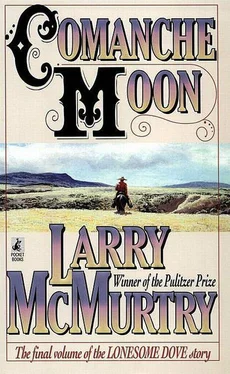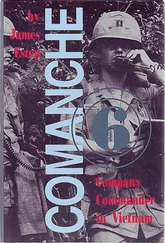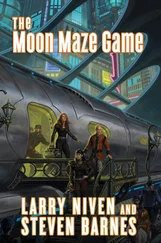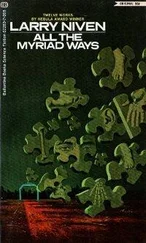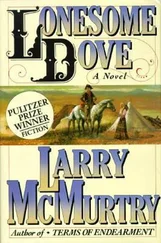Then he saw four men shovelling coals out of another, smaller pit. This pit was modest, only a few scoops of coals in it. When the coals were scattered the men lifted something out of it on two long sticks, something that steamed and smoked, although wrapped in heavy sacking. They carried their burden over to a large flat rock and sat it down. Ahumado took out a knife, walked over, and began to cut the sacking away.
"Now this is a treat, Captain," Tudwal said. "You'd do best to eat hearty before we put you in the cage." "I will, sir, I've never lacked appetite," Scull assured him. "I ate my own pig, as a boy, and now I expect I'll eat my horse." He did not inquire about the cage he was going to be put in.
Ahumado cut away the last of the sacking: Hector's steaming head stared at him from the flat rock. Smoke came from his eyes. The top of his skull had been neatly removed, so that his brains would cook.
"Now there's a noble head, if I ever saw one," Scull said, as he approached.
"Hector and I harried many a foe. I had expected to ride him back north, when the great war comes, but it's not to be. You were his Achilles, Se@nor Ahumado." Now the dark men carried machetes. Ahumado gestured for them to move back a few steps.
Scull glanced back at the larger pit.
Hector was rapidly being consumed. The dark people in the pit looked as if they had been in a rain of blood.
So it must have been when the cavemen ate the mastodons, Scull thought.
Then he turned back, pulled out his knife, and began to cut bites of meat from the cheeks of his great horse.
Once Inish Scull was securely shut in the cage of mesquite branches, Tudwal reached in and offered to cut the thongs that bound his hands and feet. Scull had been stripped naked too.
Both the binding and the stripping were indignities he didn't appreciate, though he maintained a cheerful demeanor throughout.
"Stick your feet over near the bars and I'll cut you loose," Tudwal offered. "Then I'll do your hands. You won't be able to catch no pigeons with your hands tied like that. You'd starve in ten days, which ain't what he has in mind. When he hangs a man in a cage he expects him to last awhile." "I have never cared much for squab," Scull said. "I suppose I can learn to like it, if there's nothing else." "A Mexican we hung off this cliff caught an eagle once," Tudwal said. "But the eagle got the best of him--pecked out one of his eyes." "I notice you blink, sir--what happened?" Scull said. "A sparrow get you?" "Nothing. I was just born ablinking," Tudwal said.
The insult, as Scull had feared, didn't register.
"But you weren't born in Mexico," Scull said. "You sound to me like a man who was probably born in Cincinnati or thereabouts." Tudwal was startled. How did the man know that?
He had, in fact, been born on the Kentucky River, not far from Cincinnati.
"You're right, Captain--but how'd you know that?" Tudwal asked.
"I suppose it's your mellow tone," Scull said. He smiled at the man, hoping to lull him into a moment of inattention. The cliff they were about to lower him over seemed to fall away for a mile. Once they lowered him his fate would be sealed. He would hang there in space, with half of Mexico to look at, until he froze or starved. He didn't relish hanging there for days or weeks, surviving on the occasional bird he could yank through the bars. Ahumado, an old Mayan come north to prey on ignorant people, white and brown, had not proved susceptible to Harvard charm; but Tudwal, the blinking man, did not seem overly intelligent. If he kept talking he might yet fool him into making a mistake. He had obediently held his feet near the bars and Tudwal had freed his ankles.
His wrists came next, and there lay the opportunity.
Tudwal looked puzzled when Scull mentioned the mellow tone. Actually, the man had a nasal voice with little mellowness in it.
"Yes sir, I've been sung to often by Ohio maidens--some of them may not quite have been maidens at the time. The whores in the fine town of Cincinnati have lullabied me to sleep many times.
Have you heard this old tune, sir?" He struck up the old ballad of Barbara Allen:
In London town where I was born There was a fair maid dwelling ...
Tudwal nodded. Someone far back in his life had once sung that song, a grandmother or an aunt, he was not sure. He forgot, for a moment, that Captain Scull was about to be dangled to his death. The song took him away, into memory, into thoughts of his mother and his sister, when he had led a gentler life.
As Scull sang he held his hands close to the bars so that Tudwal could cut the rawhide thongs. He sang softly, so that Tudwal would lean forward as he cut. The moment the bonds parted Scull grabbed Tudwal's wrist and whacked it so hard against the mesquite bars that he broke it.
The knife fell into the cage: he had one weapon. Then he caught Tudwal by the throat and pulled him close enough to the cage that he could reach with the other hand and yank the man's Colt pistol out of its holster. Now he had two weapons. He would have preferred to conserve bullets by strangling Tudwal, but the man was too strong. Before Scull could get his other hand on Tudwal's throat he twisted away, forcing Scull to shoot him dead, the sound echoing through the Yellow Canyon.
The four dark men who had been waiting to lower the cage immediately took their machetes and trotted away. Ahumado was still back at the crater, where the feast was being held, waiting on his blanket; he would have heard the shot.
"There, you Cincinnati fool, I warbled you to death," Scull said.
His situation had improved dramatically. He had a knife and a gun, and five bullets. On the other hand he was in a flimsy cage, on top of a five-hundred-foot cliff, and he was naked.
The bindings that held the mesquite cage together were hardened rawhide. Scull began to hack at them but the knife was dull and the rawhide hard as iron. Tudwal's horse stood near. If he could cut himself free he might have a chance, but the rawhide was so resistant and the knife so dull that it might take an hour to free himself--and he didn't have an hour.
"You goddamned fool, why didn't you sharpen your knife?" Scull said. "Not only did you have a Cincinnati voice, you had a goddamned weak Kentucky brain." It annoyed him. He had worked a miracle, killed his captor, and yet he wasn't free.
Then, with a moment to breathe, he remembered another of Papa Franklin's fine sayings: "Haste makes waste." He looked more closely at the jointure of the wrappings. He didn't need to hack the cage apart--if he could just break the wrappings at one corner of the cage he could squeeze out and run. He still had five bullets; it seemed good policy to sacrifice one or two of them to free himself. He immediately tested the decision and was well pleased with the result: two bullets and the wrappings blew apart, and he squeezed through and stood up.
His fighting spirit rose; by God, he was out! He squatted briefly over the body of Tudwal, but found only two more bullets, in a pocket of the man's dirty tunic. But the man at least wore clothes; Scull hastily stripped him and pulled on his filthy pants and tunic. They were too large, but they were clothes!
The paint horse stood not thirty feet away. Its ears were up--it looked at Scull nervously. Steady the yardarm, light on the throttle, Scull told himself. Haste makes waste. He had to approach calmly and slowly; he could not afford to spook the skittish animal. Without the horse the dark men would soon run him to earth.
The fact that he wore Tudwal's clothes was an advantage. The man's smell lingered in the filthy garments; he could plainly smell it, and no doubt the horse could too.
"Bible and sword, that's good of you, boy," he said, walking slowly toward the horse. "Be a good nag now, be a good nag. You're an ugly nag but I'll overlook that if you'll just carry me to Texas." The horse pawed the ground once, but did not retreat. Scull came on, steadily, and soon had the bridle rein in his hand. In another moment he had Tudwal's rifle out of its scabbard and was in the saddle. Then, to his intense annoyance, the horse began to crow-hop. Scull had no skill with broncos, as the Texans called bucking horses. He had to grab the horse's mane, to keep from being thrown, and in the process, to his intense vexation, dropped the rifle.
Читать дальше
